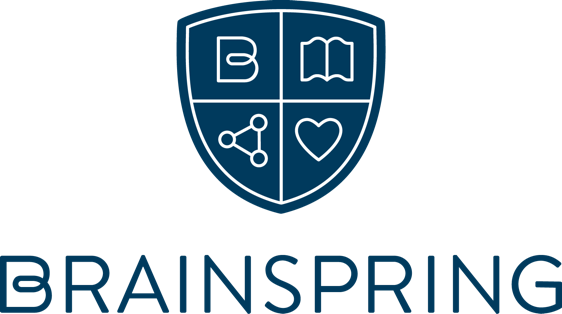Phonological Awareness Training: Overcoming the Hurdle to Success
Posted by Brainspring on 3rd Mar 2021
It is not uncommon for kids in the early stages of learning to read to have difficulty blending (combining sounds) and segmenting (separating) sounds. This is an early hurdle in reading development but a necessary component of learning to read and spell. Developing a robust phonological awareness foundation is critical to developing strong reading and writing skills. It is commonly known that a “house” cannot stand strong under a “weak foundation.” Meaning that if one’s reading foundation (phonological awareness) is weak, their reading skills will fall and cannot be built. According to leading researchers, phonological awareness is the number one predictor of reading success. This phonological awareness “hurdle” is an obstacle that must be overcome.
Many teachers find themselves scratching their heads, unsure of how to proceed when a student knows the sounds of letters in isolation but cannot blend these sounds to produce words. If a student exhibits this, there is a weakness in their foundation that must be secured in order to note any progress forward in their reading. Utilizing phonological awareness assessments can guide a teacher to know precisely which phonological awareness skills are the culprit so that remediation can be purposeful and effective. Appropriate assessments include:
- Phonological Awareness Screening Test (PAST)
- Phonological Awareness Skills Screener (PASS)
- Phonological Awareness Screener assessment by Heggerty
If a teacher is “flying blind” in trying to figure out what activities to do, they can find themselves in a situation where they are creating rather than filling instructional holes.
In providing students with phonological awareness instruction, it is essential to consider the stages or phases students go through to become skilled at any given level of phonological awareness. The goal is for students to develop to the point where phonological awareness is automatic and effortless. According to David Kilpatrick, “You are not likely to see any desired reading gains until mastery of all the levels of phonological awareness to the point of automaticity has been made.”
There are three stages or phases students go through to become phoneme proficient.
The Multisensory Stage
Students at this level cannot complete the activity mentally. They can only do the task with external prompts or help, using manipulatable tools, sound boxes, or gesticulating. The student often makes mistakes and requires repetitive opportunities to be successful. For example, Jeffrey cannot hear three phonemes and come up with the word (e.g., /m//a//p/=/map/). But by using a blending string and demonstrations by his teacher saying each sound continuously while moving her fingers down the string, he can do it. Meaning, he cannot do it mentally, but when provided with a visual reference and prompting, he can.
The Knowledge Stage
Students can do the task “mentally” without prompts or props, but their responses are not quick and automatic. They continue to make mistakes and may need repetitive opportunities. Students don’t move to the next stage until they’re consistently responding automatically and without errors. For example, Jeffrey can blend three phonemes as a word when prompted, but it may take a few seconds to respond, or he’ll blend the separate sounds under his breath before stating the word.
The Automatic Stage
Students do the activity quickly (within 2 seconds) and with no apparent effort, rarely making mistakes. For example, Jeffrey can blend three phonemes heard into a word in about one second and rarely makes mistakes.
Consider these stages when training students in phonological awareness at any given level. The goal is for these skills to be very automatic and effortless, thus stabilizing the strong foundation required for strong reading skills to emerge.
Written by Samantha Brooks, MSE, CDP.
Samantha is a Brainspring Instructor and co-host of The Orton-Gillingham Podcast.
Brainspring has proudly supported the educational community for more than 25 years.
Our Educator Academy provides educators in grades K-12 with comprehensive MSL Professional Development courses. Learn more about our in-person and online professional development.
The Learning Centers support students through one-on-one, multisensory tutoring sessions. Learn more about our in-person (available in Southeast Michigan) and nationwide online tutoring.

